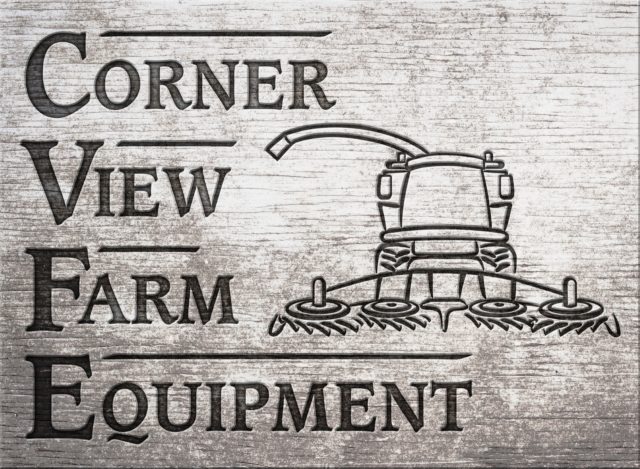When a deal is too good to be true, it probably isn’t a good deal.
I forget how the discussion started, but the other day I mentioned using a cobalt drill bit to easily drill through the handle of an adjustable wrench. The best of my other drill bits wouldn’t touch it, and my cobalt bit made a nice hole without issue.
I bought my set decades ago. They’re not a name brand, but the high-class tool store I frequent had them in stock for what I thought was a very reasonable price. At the time, a good cobalt set was three to four times the price of a good set of high-speed steel or high-speed steel titanium-coated bits. These were priced at about double the lesser-quality bits, so I bit. I trusted this retailer to be carrying only quality products, and those cobalt bits have never disappointed me.
Curiosity got the better of me, and I pulled up some offerings online to see what cobalt drill bits sell for today. I found the standard 29-piece drill set available from $29 to $150 per set. Time to read the fine print.
It seems that a little cobalt added to the alloy will both toughen and harden the steel used to make drill bits. In the description part of the ad, the more costly name-brand bits were stated as being made from high-speed steel plus 8% cobalt.
The least-expensive bits used “cobalt” in the first line of the product description without ever mentioning the cobalt content anywhere in the ad. My sometimes too-trusting mind was telling me that perhaps there’s a reason for the price difference.
Taps are another item to consider the quality of. A tap is the tool that cuts threads in an already drilled hole. A properly drilled and tapped hole will hold the same-size fastener directly turned into the hole without the need for a nut on the other end.
Taps do wear out, and they occasionally break. If you have a project with more than a handful of holes to drill and tap, it’s a good idea to have some extra taps on hand.
Taps are usually sold in sets of the common sizes, usually up to a half-inch size in both national fine, or NF (sometimes called “SAE”), and national coarse, or “NC.”
The most economical way to buy taps is getting a whole set at a time. Most of us needing our first set of taps are going to spring for a less expensive option. Almost any tap will thread a hole or two in mild steel with some appropriate prep and consideration. That is, drilling the right-size pilot hole and using a thread-cutting lube of some kind.
The pilot hole size varies with what you’re doing and how deep you want the finished threads to grab the threads of the fastener. Drilling a hole to be threaded for a quarter-inch NC fastener will call for a slightly smaller pilot hole than for a quarter-inch fastener which has NF threads. The chart will also give you a range of drill bit sizes for the size and type of threads plus how deeply you want the threads to mesh with those on the fastener.
Something low-stress will work with a minimal thread contact (75% versus 60%). If your project is going to require grade 8 fasteners (high strength), then more thread contact is needed.
Taps will eventually wear out. (The big boys say keep a couple of worn-out taps in your center-punch drawer since there’s nothing quite as precise as the tip of a tap for marking a center.)
When you have to replace a tap, it’s probably going to make more sense to get your industrial tool supply place to get you one or a handful of the tap size you need rather than spring for a new set.
Now your life is going to get very interesting. Unless your original tap set was a premium set from one of the few suppliers who have their users getting into fistfights over which brand is best … the replacement taps bought singly are going to be of higher quality. The replacement will cut cleaner, easier and will last longer than did the original that was part of a set.
If you’re not aware of a quality tool retailer, step into a machine shop and ask if they’ll sell you a 3/8-inch NC (as an example) tap. If they decline, see if they’ll recommend a source. To them, a tap that will thread a hundred holes is worth a bunch more than one that’s good for 10 on a good day. More than the difference in price.
How much quality do you need to pay extra for?
Experience. If it’s something you’re going to be using every day for the foreseeable future, you want something that’s going to last. If you have a project that’s a one-time deal, consider the cost. If something cheap will more than do the job once without breaking, go for it. If you’re not sure, find someone who has done that job at least once and ask what they used. If the stars and planets are lined up right, he or she may have the tool you will need and will let you borrow it.
I have a plasma cutter I got a few years back for around $200. It’s nothing like the one I used at a manufacturing shop. It has its quirks and issues. I’d hesitate to let someone borrow it because, well, it’s kinda delicate. But I’ll never replace it because it does what I need it to do and the additional $800 for a known improvement just isn’t worth it for me.
It's fair to go cheap if you’re not sure how often you’ll need a tool. If you break it, you know you need a better one. If the “new toy” isn’t any improvement of what you’ve been doing, it’s no great loss.
If you’re overhauling an engine and the head bolt torque sequence is a three-time go around with slightly more torque each time around, then a “plus 90 degrees,” then you don’t want to be trusting your bargain-shelf $29 torque wrench.
“A good mechanic can get it tight enough to hold without breaking off a bolt.”









